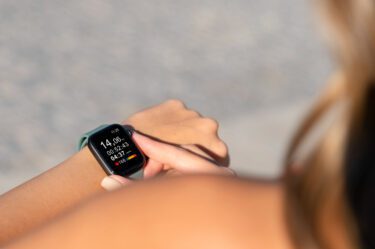This is the central question in a study initiated by Cardiologie Centra Nederland (CCN), a Dutch network of specialized heart clinics focused on innovative, patient-centered cardiology care. Heart for Health supports the research as the digital supplier for Cardiologie Centra Nederland.
According to epidemiologists in Europe, the number of atrial fibrillation (AFib) patients in the European Union is likely to double by the year 2060. AFib is a common heart rhythm disorder that can have serious consequences if not treated in time, such as stroke or heart failure.
Apple recently published an article about the Cardiologie Centra Nederland study on their website. Below is a summarized translation of it.
At Cardiologie Centra Nederland in Amsterdam, Dr. Sebastiaan Blok, eHealth Director, and his colleagues are exploring ways to detect AFib earlier. The researchers have developed a randomized controlled trial as part of a larger initiative called HartWacht. HartWacht is the first eHealth concept reimbursed by all Dutch health insurers. “In the Netherlands, around 300,000 people have been diagnosed with atrial fibrillation,” says Dr. Nicole van Steijn, a member of the research team. “There are an estimated 100,000 people who have this arrhythmia but are unaware of it, likely because they don’t experience any symptoms.”
The study involves more than 300 patients over the age of 65 who have an increased risk of AFib. Half of the participants – the intervention group – wear an Apple Watch for at least 12 hours a day. “Apple Watch is such a widely used, reliable smartwatch that we’re keen to investigate whether this device can be used on a large scale to detect AFib early,” says Blok.
Participants are expected to take an ECG once every three weeks. Additionally, they can take an ECG when the watch detects an irregular heartbeat or if they experience symptoms themselves. This ECG is automatically forwarded for evaluation, and if AFib is detected, the researchers contact the participant immediately.
Within three weeks of the study’s commencement, AFib was already detected in a symptom-free participant in the intervention group. This marks the beginning of what Cardiologie Centra Nederland aims to achieve with the Apple Watch. In the future, the researchers plan to further explore the ECG app’s potential, including its use to monitor patients at home to assess the effects of prescribed medications on heart rhythm.
Cardiologie Centra Nederland is also investigating whether the Apple Watch could be used to monitor heart failure patients at home as a preventive measure. Treating this condition is costly, so it makes sense to monitor predictive factors for heart failure destabilization.
“We continue to grow, innovate, and seek new opportunities based on science and technology,” says Blok.
The original article can be read at Apple Newsroom.
